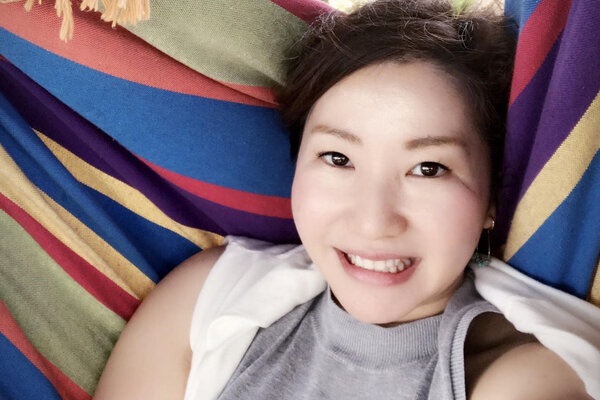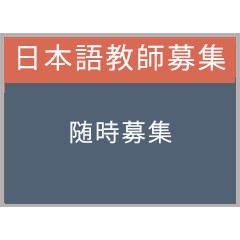Japanese Learning in Kowloon
Native Japanese Tutor FUMI

Part Time Japanese Teacher FUMI
Native Language Japanese
Language Ability Communicate in English
Born FUKUOKA – Japan
Teaching Area Ma On Shan, Shatin, Tai Po, Hung Hom, Tsim Sha Tsui etc
Japanese Courses Provided by FUMI
Hong Kong Native Japanese Tutor
I am FUMI, I was born in FUKUOKA Kyushu Japan, I have lived in Hung Hom for 5 years, now I live in Ma On Shan 馬鞍山, I really like living in here because it is surrounded by the sea and mountains.
I was working as a receptionist and secretary at a hospital and staff in high school in Japan, now I am working at a Japanese primary school in Hong Kong. I am talking with Japanese kids at school in Japanese everyday. I would like to teach Japanese for more students including babies, kids and adults. For babies and kids, I will teach through the books, teaching Japanese in fun way such as playing the games, singing the songs. For adults, especially for those love Japan travel, Japanese foods, I will focus on their interests to teach nature Japanese phrases.
I am also holding tea ceremony license, let’s learn Japanese with delicious tea for stress relief together! Looking forward to having lessons with you!
こんにちは!九州の福岡出身のFUMIです。以前は紅磡に5年間、今は馬鞍山に住んでいます。海と山に囲まれて 空気も美味しく すごく気に入っているエリアです。
私は日本で病院の受付兼秘書、公立高校の事務職を経て、現在香港の小学校に勤務しています。ですので 元気な子どもたちと毎日 日本語でお話ししています。赤ちゃんから 本の読み聞かせや、ゲーム、お話ししたり、歌も得意なので一緒に日本の歌を歌ったり出来ます。
大人の方も 日本のここに行きたい!これを食べたい!こんな経験をしたい!など 興味があるところから 正しい日本語をお教えしたいなと考えております。私は茶道のライセンスも持っているので 季節を感じながら美味しいお茶(抹茶)の点て方など日頃の疲れを癒しませんか?対応可能です。お会い出来るのを楽しみにしております!
Private Japanese Lessons and Personalized Programs
If you have a lesson style that you wish, I’ll give priority to that, or I’ll arrange the methods and teaching materials in accordance with the ability of an individual learner.
I also warmly welcome kids! I basically would like to use ‘Kodomo no Nihongo’ for kids.
Japanese Teaching Qualifications and Experience
I have completed a training course for teaching Japanese as a foreign language. This course has prepared through the use of English and direct method to foreign language speakers. The topics covered included Japanese grammar, Class Management, Lesson Planning, Teaching Methodology, Questioning Skill, Organisational Skills. I still have been learning the master course.
Japanese Teaching Approach
I will first get to know the individual student’s Japanese learning style, and the learning objects, aims and current Japanese level, then decide the textbooks and teaching method. During my lesson, I will use color cards, related books for extra Japanese teaching.
ご希望のレッスンスタイルがあればそれを優先します。または個々のレベルや目標を知った上で学習項目を決め、教授法、教材を決めさせていただきます。教科書についてですが、教科書は基本的にご自宅で読んでいただいて、分からなかったところを一緒に復習していきたいと思います。
必要な時は絵カードや小道具、関連本などを持参します。
Ask FUMI Teacher Japanese Learning Questions
FUMI先生へ「多く」と「多い」と「たくさん」と「大勢」の違いについて教えていただけないでしょうか?
FUMI先生’s Answer:
「多く」と「多い」はどちらも量を表しますが、「多く」は後に後置詞などを伴い文が続きます。「たくさん」は数量の多いことを
あらわします。「大勢」は人数が多いという意味です。
例 多くの本を読む。○
例 たくさんの本を読む。○
上の2つの例文では、「多く」の方が丁寧な響きがあります。
下の例文の「多く」は、大部分という意味です。
例 あの週刊誌の多くはガセネタだ。
「多く」は多いの連用形としても使われます。
例 労働者の多くから不満が寄せられた。
議長が出席者の多くに意見を求めた。
「多い」は形容詞で、事物の状態を表します。
例 あの学校は宿題が多い。
最近交通事故が多い。
お酒をよく飲む人はB6の多い食品を摂るとよい。
「たくさん」は、数量の多いことをあらわします。「大勢」は人数が多いという意味です。
暑い日はたくさん水分を摂ってください。
こんなにたくさん食べたら明日体重計にのるのが怖いです。
どうしたんだろう?あそこに大勢人がいる。
昨日オープンしたあのレストラン、朝早くから人が大勢並んでたよ。
FUMI先生へ「やっと」と「ついに」と「とうとう」の違いについて教えていただけないでしょうか?
FUMI先生’s Answer:
「やっと」は長い時間を要して、または様々な障害を克服してそれが実現するさまを表します。
「ついに」は長い時間の過ぎたのちに、期待したり危惧したりした状態に達するさまを表します。
「とうとう」は最終的な結果として物事が実現した、あるいは実現しなかったという意を表します。
「やっと」はよい結果にしか使えませんが、「ついに」と「とうとう」は良い結果にも悪い結果にも使えます。
やっと試験に合格した。○
ついに試験に合格した。○
とうとう試験に合格した。○
やっと携帯が壊れた。×
ついに携帯が壊れた。○
とうとう携帯が壊れた。○
「やっと」と「とうとう」は口語的で、「ついに」は文語的です。
「とうとう」は結果に重点が置かれ、
「やっと」は、長い時間を要したり、苦労してある状態に至った経過が強調されます。
「ついに」は、長い時間を要したが、努力したかどうかは関係ありません。
やっと折り返し地点に来た。○
ついに折り返し地点に来た。○
とうとう折り返し地点に来た。×
FUMI先生へ「ぜんぜん+否定形」と「ぜんぜん+肯定形」の違いについて説明してくれませんか?
FUMI先生’s Answer:
「ぜんぜん+否定形」のぜんぜんは、一つ残らず、まるきり、全くという意味です。
ぜんぜん痛くなかった。は、まるきり痛くなかった、少しも痛くなかったという意味です。
雨が降るって予報だったけどぜんぜん降らなかった。は、全く降らなかった、少しも降らなかったという意味です。
「ぜんぜん+肯定形」は、程度の強調を表す用法で、話し言葉での俗な言い方です。フォーマルな場や書き言葉のときは使わない方が良いです。代わりに「断然」を使うと良いです。
ぜんぜんいい。は、非常にいい、とてもいいの意味です。
ぜんぜんおいしい。は、とてもおいしいという意味です。
Ask FUMI Teacher Japanese Culture Questions
おたく(オタク、ヲタク)を英語にするとgeek、nerd といいます。オタクがたむろする聖地として主に東京の秋葉原(あきはばら)や大阪の日本橋(にっぽんばし)が挙げられます。特に秋葉原のオタクは「アキバ系(あきばけい)」と呼ばれています。これらの場所は、数多くの電子製品、マンガ、アニメのDVDが売っています。オタクは男性だけと思われがちですが、女性も少なくありません。
オタクたちは、自分たち自身の文化をもっていて、サブカルチャーや趣味に嗜好をもち、その細部にこだわり、自分の世界に閉じこもって没頭する傾向が強いです。
秋葉原や日本橋では、「コスチュームカフェ」と呼ばれるカフェも人気があります。こういったカフェでは、ウエイターやウエイトレスがマンガやアニメのキャラクターの格好をしたり、執事やメイドなどの特定の職業の人の格好をしたりしています。アニメのキャラクターの格好をするのが好きなオタクもいます。
「おたく」の定義は未だに確立していませんが、広い意味を持つ言葉となってきました。1990年代頃からは否定的な意味は薄れ、肯定的に用いられるようになったといいます。
今では、何かの趣味に強いこだわりを持つ人物という意味でも使われ、社交性に欠けるという以前のイメージから脱却しつつあるとも言われています。
Japanese OTAKU Culture
Japanese OTAKU in English is called GEEK or NERD, Akihabara in Tokyo and Nihonbashi in Osaka are the main sacred places for OTAKU to hang out. Akihabara OTAKU in particular are called “Akibakei”. Many electronic products, manga and anime DVDs are sold at these locations. Geeks tend to be considered only men, but many women nowadays.
OTAKU have their own culture, have a preference for subcultures and hobbies, and are more likely to immerse themselves in their own world.
Cafes called “costume cafes” are also popular in Akihabara Tokyo and Nihonbashi Osaka. In these cafes, waiters and waitresses dress as characters in manga and anime, or as people in specific occupations such as butlers and maids. Some OTAKU like to dress like anime characters.
Although the definition of “OTAKU” has not been established yet, it has become a word with a broad meaning. Since the 1990s, the negative meaning has diminished and it has come to be used positively.
Nowadays, OTAKU is also used to refer a person with a strong interest in the hobbies, and it is not only referring to say a person who has poor social abilities.



Stay in Touch
RSS
Facebook
Twitter
Google +1